SUMMARY
This is AI generated summarization, which may have errors. For context, always refer to the full article.
![[Just Saying] A new Chief Justice, but will perceptions change?](https://www.rappler.com/tachyon/2021/04/TL-new-sc-chief-justice-April-7-2021.jpg)
The appointment of a new Supreme Court Chief Justice was welcome news, not because it generated a sense of hope, but only because the institution’s continuity was ostensibly assured. Chief Justice Alexander Gesmundo’s assumption has been met with cautious inquiry, even concern by certain sectors.
The real issue is: will this development change the perceptions held by many of the Supreme Court? Or will it just be “business-as-usual,” with nothing ventured, nothing gained, even with a new person at the helm?
Now, one might ask, why “perception?” The answer is because in the quest by ordinary citizens for justice, equality, due process, or respect for human rights, an important starting point is the view which they have of the arbiter himself. At the very least, there must be some semblance of trust, brought about by an impression of uprightness. Otherwise, the judiciary and its judges will be seen as mere technicians at best: aware of the laws but divorced from the core ideals which give life to them. At worst, they may be seen as just conduits for validating and perpetuating oppressive regimes.
And so what are some of these perceptions?
First, the perception that the Supreme Court is, to put it simply, a “packed” one. It is dominated by magistrates appointed (after referral by the Judicial and Bar Council) by President Rodrigo Duterte. Eleven of the 14 are his appointees. Rightly or wrongly, this engenders the impression that in any dispute, the Justices will favor “the powers that be.” Thus the perception is that they are not independent, but instead have orders to follow or a debt of gratitude to pay.
Second, it is naïve to think that President Duterte would take a chance in appointing someone completely opposed to his own beliefs. He chooses people he likes, and who, in all probability, are liked because they believe as he does in his current brand of governance and politics. Thus, the perception is that these chosen Justices are inclined towards a certain belief system defined by the President’s own predilections. At the very least, they may share many of his core convictions.
These two perceptions combine to taint how the public views the Supreme Court, especially in highly contentious and publicized national issues, which always seem to go in favor of the preferences of this administration. A lot of people view the Supreme Court as either spineless or subservient to some authority other than law in cases like the Marcos burial, the Martial Law rulings, the acquittal of former President Gloria Macapagal Arroyo, and the very controversial quo warranto ouster of former Chief Justice Maria Lourdes Sereno. Especially when juxtaposed against the powerful and brilliantly written dissents in these cases, the ponencia leave much to be desired. Thus, pejoratively, and even if untrue, the Supreme Court has many people believing merit is secondary to who holds the numbers in their ranks. As in the highly partisan legislature, nothing is different.
For Chief Justice Gesmundo to be considered not merely an occupant but a transcendent leader, he must steer the Supreme Court away from these negative perceptions. He must ensure that invocations of judicial restraint do not serve as a façade for undue deference and loyalty to President Duterte, that justice and the law steps in when they can, and when they must.
And he will have many chances.
The first opportunity will be the issue of the Anti-Terror Law, which provides that law enforcement agents or military personnel, upon the written authorization of the Anti-Terrorism Council, can take “custody of any person suspected of committing any of the crimes” under the said law. Mere “suspicion” is the statutory threshold for an arrest under this law. The Court’s decision in this case will set the tone for Chief Justice Gesmundo’s tenure.
Remember, the Anti-Terror Law was urgently endorsed by President Duterte to Congress. He appointed Justice Gesmundo, first as an Associate Justice, and now as Chief Justice. On the other hand, the Anti-Terror Law is strongly assailed by many sectors of society, including lawyers, teachers, religious leaders, journalists, the youth, the urban poor, the labor sector, politicians, and other ordinary citizens. It will be interesting to read his opinion, whether he dissents or concurs with the final outcome.
Can Chief Justice Gesmundo, who has gained so much under President Duterte’s rule, separate himself from the interests of, and even go against, the latter? Should the merits of the case call for it, does he have the courage to do so, and the fortitude and persuasive abilities to convince other Justices to follow suit?
There is a second opportunity. Chief Justice Gesmundo presides at a time when Associate Justice Marvic Leonen is sought to be impeached in the House of Representatives. There must be a more vocal defense of both his peer and the institution especially when the grounds invoked do not reach the level of an impeachable offense. Chief Justice Gesmundo cannot be timid in this regard.
Any cautionary message to the House of Representatives should not be misconstrued as interference in its prerogatives. It is part of the check and balance system in a democracy. If there is abuse of power, it is the duty of the Supreme Court to put Congress on notice without necessarily pre-judging the case which may come before it. Words can be crafted to relay a non-intrusive assessment.
And if some House members decry it as an encroachment, let them feel that way. Their incapability to comprehend the dynamics of our constitutional system is their own fault. If through the Supreme Court’s stance they are dissuaded, it may only be because they might have realized that their endeavor is a time-wasting one, alien to any concern for their constituents. If, as a result, this creates an impulse not to continue with the impeachment, then check and balance would have been legitimately achieved.
Chief Justice Gesmundo leads at a crucial time when the Supreme Court has never been more shrouded in doubt, but, in the same breath, when it has never been more needed. He holds the rudder. He can direct the Supreme Court into a shining era — a period of judicial integrity, activism, and strength, where the spirit of the Constitution, the aspirations of its provisions, and its historical foundations are honored and upheld.
In the alternative, he could direct the Supreme Court, and the rule of law with it, towards darker waters, deeper and deeper until there is no turning back. I hope not.
On a personal note, I congratulate Chief Justice Alexander Gesmundo. I know you as a decent, hard-working, honest, and intelligent public servant. I pray you will not disappoint. The people will be watching. – Rappler.com
Mel Sta Maria is dean of the Far Eastern University (FEU) Institute of Law. He teaches law at FEU and the Ateneo School of Law, hosts shows on both radio and Youtube, and has authored several books on law, politics, and current events.
Add a comment
How does this make you feel?
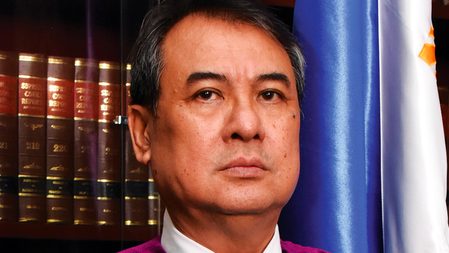
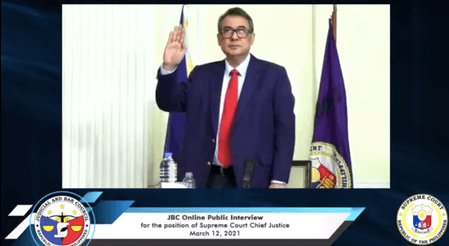
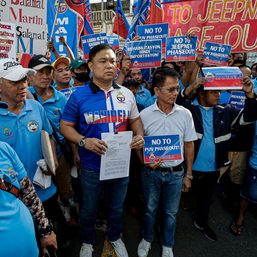



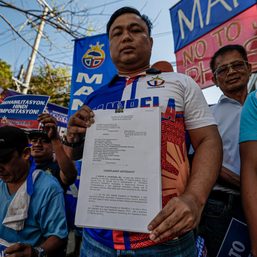
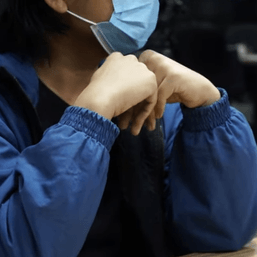
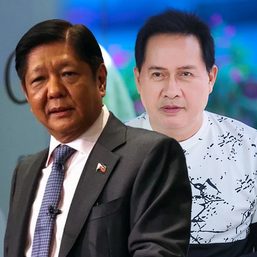



There are no comments yet. Add your comment to start the conversation.